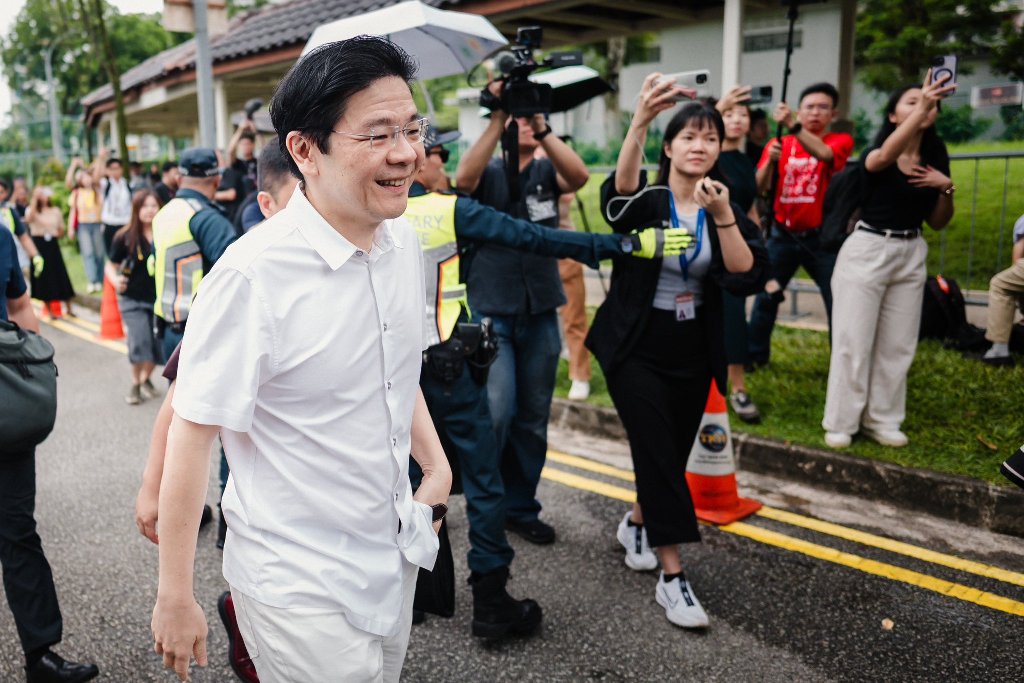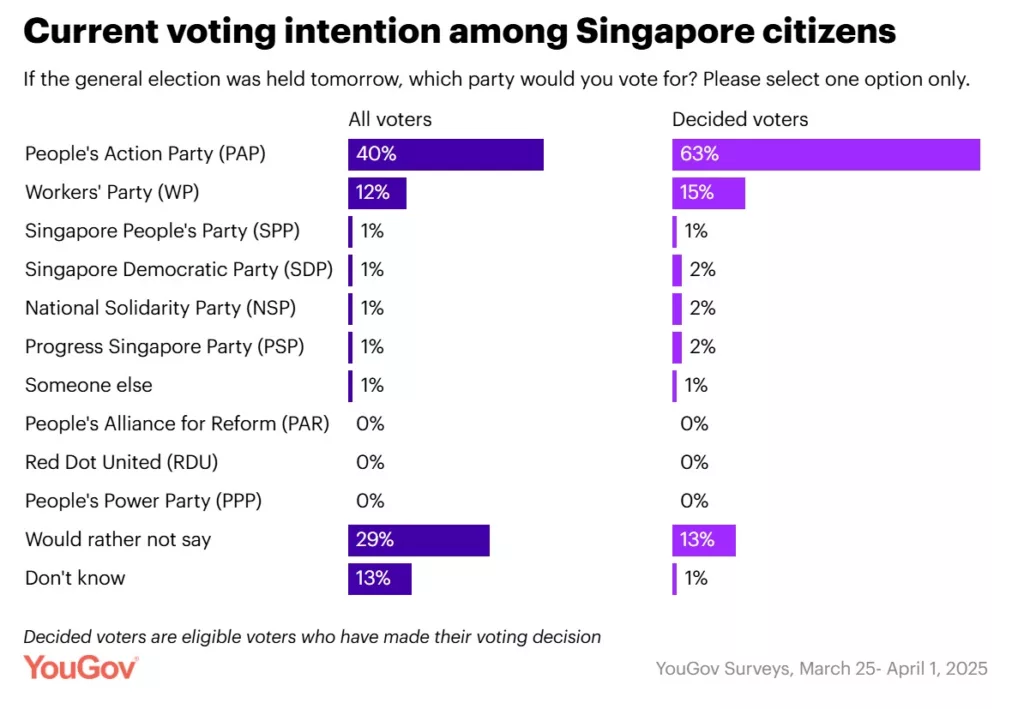Singapore will go to the polls on May 3 in a significant parliamentary election, marking the first big political test for newly appointed Prime Minister Lawrence Wong.

As the People’s Action Party (PAP) aims to extend its uninterrupted rule since 1965, the outcome could shape the city-state’s political future.
The PAP is widely expected to win the vast majority of the 97 seats in parliament, fielding candidates in all 33 constituencies. Known for good governance, a stable economy, and effective policy delivery, the party has long dominated Singapore’s political scene.
ALSO READ: GE2025: PM Wong warns of tougher challenges than pandemic-era election
In total, 211 candidates are contesting, with 46 percent from the PAP.
The main opposition, the Workers’ Party (WP), is contesting in only about a quarter of the races, giving it a possibility of winning in maximum of 26 seats.
The Progress Singapore Party (PSP), the other party represented in the last parliament, is running in just 13 seats.
A vote for change?
While the PAP’s overall dominance is unlikely to be challenged, experts believe this election could still send a powerful message about the political mood of the country. In the 2020 election, the PAP’s vote share fell to 61 percent, down from 70 percent in 2015. The WP won a record 10 seats.
ALSO READ: Ahead of general elections, 44 percent of Singaporeans have already chosen their party: Survey
Observers say that further gains by the opposition could signal growing public interest in a more pluralistic political environment.

Younger voters, in particular, are showing a preference for more diverse views, accountability, and open debate in Parliament.
Former PM Lee Hsien Loong has cautioned that more opposition seats could “weaken the ruling party’s ability to govern” and lead to a loss of experienced ministers.
Key issues: Cost of living and jobs
The opposition is focusing on rising living costs and housing shortages, pressing issues in one of the world’s most expensive cities. The PAP has countered with financial aid measures announced in the February budget, including vouchers, tax rebates, and cash payouts.
ALSO READ: Singapore: IMDA acts against online posts by foreigners ahead of GE2025
Another hot topic is the role of foreign workers in high-paying jobs, with opposition parties pushing for stricter policies. Healthcare affordability is also in focus, especially given Singapore’s ageing population.
Wong has warned against what he calls “tempting” opposition promises, arguing they could damage the country’s finances and deter investment.
PAP’s advantage
The PAP also enjoys structural advantages. The election was called with just over two weeks’ notice, giving the opposition little time to prepare. More than half of constituencies are multi-member seats, requiring larger teams and higher financial deposits to contest — resources most opposition parties struggle to match.
Additionally, the redrawing of electoral boundaries, though said to reflect population changes, has often benefitted the PAP, as per reports.
ALSO READ: PM Lawrence Wong urges Singaporeans to back PAP in GE2025 amid global uncertainty
Analysts believe a 60–65 percent vote share would be seen as a strong endorsement for Wong’s leadership. Any noticeable drop, however, may raise concerns about waning public confidence in the new prime minister and could mark the beginning of a shift in Singapore’s political landscape.
GE2025: In numbers
A total of 97 parliamentary seats.
PAP has already won five, due to walkover in a multi-member constituency. It is the first such instance in 14 years.
Election will have 2.76 million eligible voters.
Increase of nearly 49,000 since the 2023 vote, where the City-State chose its President.
Total number of candidates are 211.
PAP has fielded 46 percent of the total candidates.
A total of 11 parties are running in the election.
The incumbent PAP is the only party to have candidates in all seats.
Chief opposition, the Workers’ Party, has fielded candidates in only 26 seats.
Of the 11, only six parties are contesting in more than 10 seats.
In a total of 33 constituencies, 17 are multi-member and 15 are single-member.
ALSO READ: MVP enters Singapore politics, eyes East Coast GRC battle in GE2025
Only five constituencies will be contested by more than two parties.
Parties campaigned for nine days after election was called on April 15.
PAP, which has never lost, has won the election a record 13 times.
PAP’s rule began in 1965, the year Singapore became an independent nation.
The average percentage turnout in parliamentary elections since 2001 in the country is 94.2. Voting in Singapore is compulsory.


